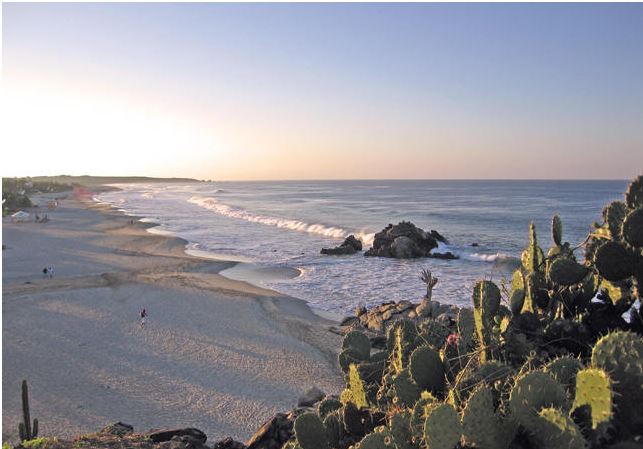
By Akaisha Kaderli,
RetireEarlyLifestyle.com
Special to the Financial Independence Hub
Recently, the media has been covering the influx of Expats into countries such as Portugal, Thailand, Mexico, Guatemala or Panama. Apparently, this rise of foreigners relocating in these cities and towns have the locals annoyed.
On occasion we even have readers expressing concern about moving from their own country and the possible attitude of the locals that might greet them when they arrive.
Here at Lake Chapala [in Mexico], we have also seen the inpouring of Gringos over the years. For the most part this has been a good thing. However, this influx does change the culture, prices do go up, and many of these “newbies” aren’t bothering to learn any Spanish.
This lack of interest in their newly adopted home country grates on the natives.
What to do?
Learn the local language and customs
Nothing irks a native more than a blissfully ignorant Expat.
Even if all you can muster are the words for “Thank you,” “Please,” and “Good morning” – show some respect for those who have lived in an area all their lives. Make an effort to communicate with them.
There are plenty of language courses online and learning a few local phrases will pay off hugely for you.
No matter where your home country is, this newly adopted place of residence has different customs, holidays, foods and ways of celebration. If you can, embrace them. If you can’t: at least have the cultural awareness not to complain loudly and daily.
Don’t just throw money at a situation, get personally involved

Expats can be known for simply throwing money at problems instead of becoming involved in a solution.
Now granted, one’s health might prevent you from lifting, bending or standing long hours doing volunteer work. However, find out what your skills are and donate them.
Whether it’s re-homing a rescue pet, teaching English as a second language, or even instructing local children in music or art, that personal contribution is remembered. More importantly, your face and personality will be remembered, and if there is ever any trouble, this is human currency in your favor.
Billy imported an electronic scoreboard for the gymnasium here in Chapala which made him an overnight hero. Then he raised money and built two more tennis courts in the city park.
Needless to say, the fruit of his work is that he is well respected and known in the community.
Please don’t bring your politics and home problems with you
THIS. IS. HUGE.
Somehow for Americans and Canadians, this idea escapes them.
Moving to a foreign country, and then immediately setting about making your new location exactly like the one you just left is simply being tone deaf.
There is no advantage to arguing with other Expats – or the locals – about problems over which you left your own home country to begin with.
Seriously.
Adapt, adjust, get a mitt and get in the game… or go back home.
Your new location isn’t “just like home only cheaper.”
Further developing the idea above, one needs to realize that your new location will never be like where you grew up.
Buying a bigger, better house, utilizing all the services of a gardener and maid, and basically living large without any contribution to the community surrounding you upsets the societal balance. It causes the locals to become resentful of your presence. They don’t like that kind of snobbery where the Expats feel as if they are better, more entitled than the ones who were born there and grew up there.
Connect. This will be your saving grace.
Realize that your presence absolutely changes the local culture.
Unbeknownst to many Expats your presence increases the locals’ cost of living.
The rents go up, the price of housing goes up and prices in general get higher. Your residing in this foreign country can trigger issues such as whether there’s enough water to go around or if the sewer system can handle the influx of humanity.
Traffic increases on roads that were meant to transport less people. Stop lights automatically get put up, Wal*Mart, Costco and other box stores get built, menus in restaurants get printed in English.
If, because you are thrilled to find a good housekeeper and her wage is so affordable that you decide to pay her above the prevailing rate, this automatically prices the local residents out of being able to afford her services.
This doesn’t sit well with them.
Your omnipresence is obvious to everyone in the town.
It’s more advantageous to everyone if you think and live like a local, pay local prices and buy local products.
A Personal example

I was at my dermatologist recently when a Gringa stated loudly to everyone in the waiting room how much she liked this doctor and how she should raise her prices. “I can’t believe she offers her services to us so cheaply. She is worth more.”
While this Gringa’s heart was probably in the right place, the Good Doctor also serves the local Mexicans. Raising her fees would simply price these patients out of being able to afford her. The Doctor knows that and comments such as these put a pressure on her that is unwelcome.
This boisterous do-gooder had no clue that her idea was destroying the financial ecology of the area. She might also be overpaying her maid and leaving huge tips on restaurant tables as well. While this appears to be helping those seemingly less fortunate, in actuality, the labor force soon becomes dependent on the inpouring of foreign money. The locals cannot compete and resentment over our being in their country builds.
In Summary
Humans are humans everywhere. Showing respect and courtesy goes a long way in paving a smooth path for yourself.
There might be many reasons you could choose to relocate to another country. Perhaps it’s better access to health care, more affordable cost of living, or more pleasant weather.
But wherever you might transplant yourself, realize that you are a guest in this new host country. And as a guest, you are not entitled to anything.
It’s far better for you – and for the locals – if you respect their culture, try to contribute and even make some local friendships.
 Billy and Akaisha Kaderli are recognized retirement experts and internationally published authors on topics of finance, medical tourism and world travel. With the wealth of information they share on their award winning website RetireEarlyLifestyle.com, they have been helping people achieve their own retirement dreams since 1991. They wrote the popular books, The Adventurer’s Guide to Early Retirement and Your Retirement Dream IS Possible available on their website bookstore or on Amazon.com.
Billy and Akaisha Kaderli are recognized retirement experts and internationally published authors on topics of finance, medical tourism and world travel. With the wealth of information they share on their award winning website RetireEarlyLifestyle.com, they have been helping people achieve their own retirement dreams since 1991. They wrote the popular books, The Adventurer’s Guide to Early Retirement and Your Retirement Dream IS Possible available on their website bookstore or on Amazon.com.

